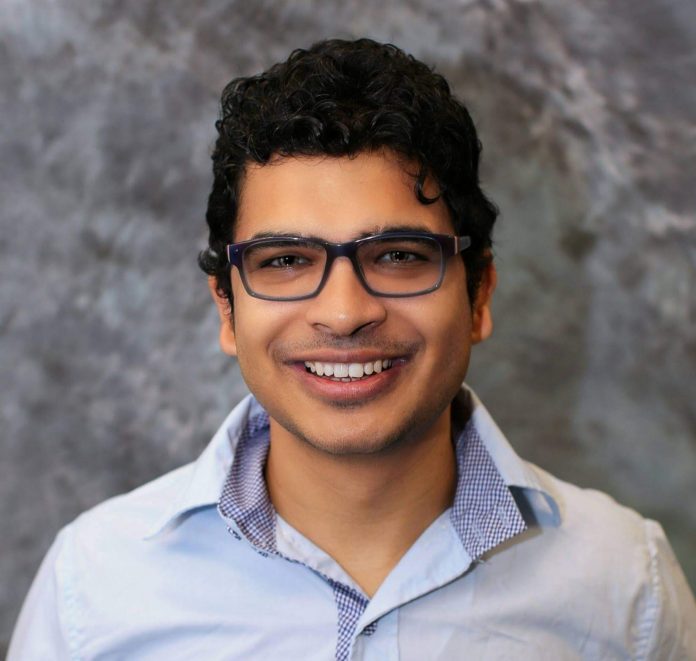Known for his recent career at the National Aeronautics and Space Administration (NASA), Hari Subedi, a former refugee from Bhutan who arrived in the United States when he was 18-year-old, is trending on the social media sites within the Bhutanese diaspora after the agency featured his story. In this interview with the Bhutan News Service (BNS), Subedi talked to Bhuwan Gautam exclusively about his long journey from the Bhutanese refugee camp to NASA. He shares his experiences, talks about his resilience in pursuing his goals, and shares a message for the Bhutanese community’s youth.
Congratulations on this huge success. It must be exciting to be such an example for the Bhutanese community worldwide.
Yes, I am honored to have such a level of support from the community. I would like to use this opportunity provided by BNS to thank my family, friends, and teachers since my early childhood, who are dispersed around the globe, for playing a vital role in shaping my career. I hope that it provides encouragement for the younger Bhutanese generation to pursue their dreams and pray that they succeed in their endeavors.
Your childhood classmates describe you as someone who always wanted to focus on studies despite dire circumstances; What gave you the fortitude?
I was always interested in learning something new and improving myself, which helped me move forward.
How did you know you loved science? How did you choose to pursue a career in the field of engineering?
At this point, it sounds like a cliché but growing up I enjoyed watching the sky and the stars at nighttime. When (my brothers and I) heard in the news about meteor showers or comets being visible, we would stay up late to watch these phenomena. I read about batteries and worked on extending the battery life so that we could listen to the radio for a few more days or even a week. Those were fun times. We would even watch the airplanes and occasional helicopters flying above. Oftentimes, we walked miles to watch airplanes take-off and land. I wanted to understand it all, so I took interest in science classes. Learning about these subjects made me happy, so I continued my career in the relevant field.
Many of us who were raised in the refugee camps recall adversities. How did you move forward? How did you meet the day-to-day challenges?
I was and still am an avid sports enthusiast – both as a player and as a follower. I was also interested in general knowledge quiz competitions, hence I was preoccupied with preparing for the next interclass or inter-school competitions. These helped me cope with the difficulties. Besides, classes, homework, and projects kept me busy.
In addition to the support you received, what drove you to dream so big and consistently pursue your goals?
My self-belief and can-do attitude that were validated by my academic success helped me remain on the path to where I am today.
What piece of advice do you give to those other aspiring youth within the Bhutanese community who are either motivated or discouraged to set bigger academic goals?
I would advise them to work hard, continue to push forward, believe in themselves, always learn something new, keep themselves motivated, and network with people in their field.
Are there teachers, mentors or others who you’ve encountered along the way whom you might single out for their encouragement?
To be honest, there were a lot of mentors and teachers along the way. To name just one would not be fair.
When you encounter people outside the Bhutanese community, what is it you hope they will learn and understand about us? Also, what do you hope the next generation, born here in the U.S. should understand about our past?
I would like them to learn that despite the sufferings and disadvantages we faced we are hopeful, forward-looking, fair, and hardworking individuals. I hope the next generation learns and comprehends our journey and heritage – the sacrifices and sufferings of our parents and grandparents.
How would you encourage resettled refugees to, in turn, encourage their children to achieve? And to identify their passions?
This is a tough one to answer. I am a firm believer in individual choices. Parents should let their kids be involved in sports, entertainment, and other career possibilities. Academic career and well-paying corporate jobs are not the only worthy fields to pursue. Everyone should have the opportunity to lead a meaningful and happy life. Kids should pursue different avenues with good faith not just to sound cool or for the sake of doing it.
After achieving this tremendous success, what do you envision next?
Working as technical/project lead in future missions is what I aspire to do next.
From your successful position at NASA, do you see ways you can help the Bhutanese community?
Yes, I would like to get involved and help my community to the best of my abilities. If anyone would like to reach out, my email is [email protected].
Lastly, how do you define success and failure?
I have both quantitative and qualitative definitions for success and failure. Quantitatively, it is easy to define them. Either you meet a certain predetermined goal, or you don’t. Qualitatively, success would mean you learned something valuable and were able to apply it and improve your or someone else’s life. Success also means that whatever you accomplish brings happiness to your life and people close to you. Even a quantitative failure could be classed as a success if it leads to new and useful findings and conclusions.

